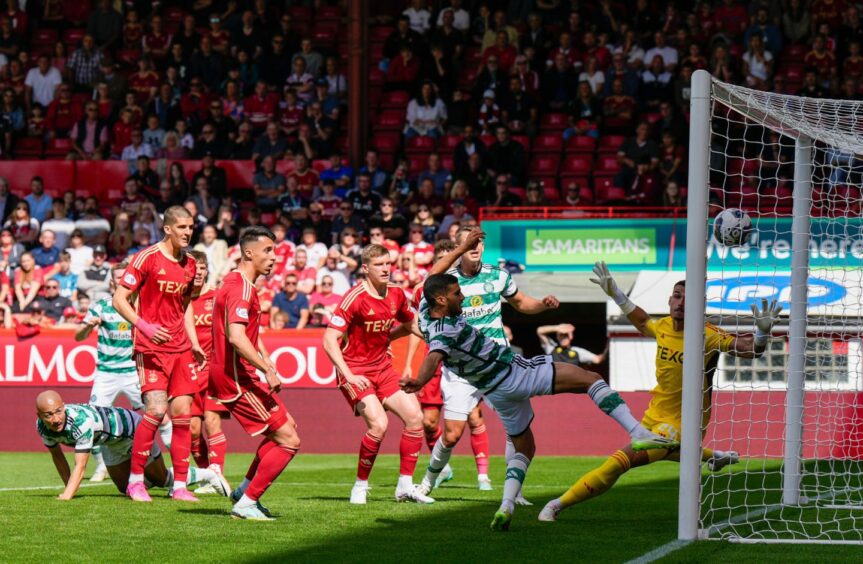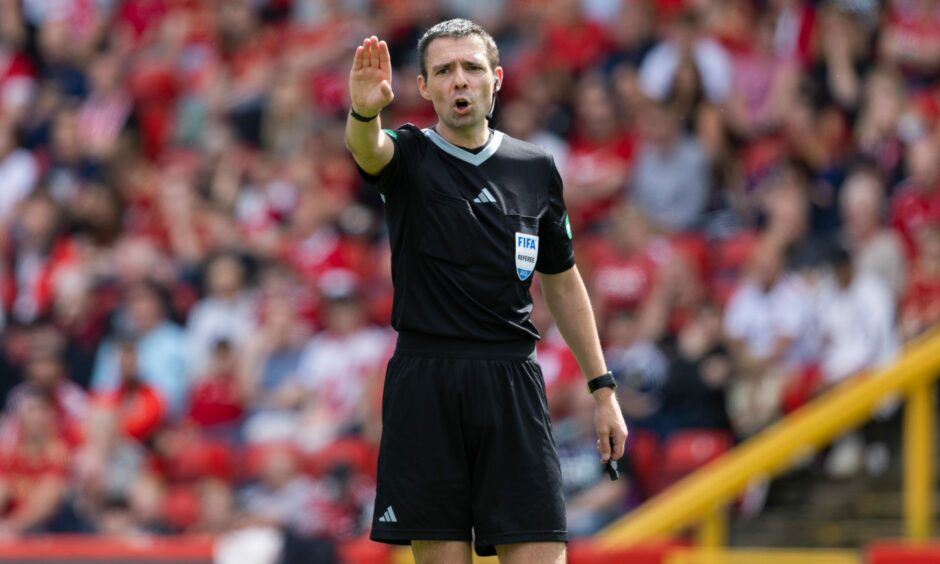Aberdeen welcomed defending Premiership champions Celtic to Pittodrie for their first home game of the season on Sunday, going down 3-1 despite a positive display. But how was the performance of referee Kevin Clancy and his officiating team?
We start with the opening goal of the Premiership clash.
Celtic’s Liel Abada finished from close range following a set-piece where the ball ended up in his path with the goal at his mercy.
However, the assistant referee raised his flag for offside, initially disallowing the goal.
My first thought from the opposite end of the park was onside because, with the amount of bodies in the box, the chances of someone playing him on was high.
As should always be the case now, the use of VAR meant the right decision was eventually reached.
It was a fairly lengthy check – something I don’t think will change this season.
Clancy kept card count down – though Dons skipper Shinnie was lucky
There were plenty of strong tackles throughout the Aberdeen-Celtic game, which I thought was generally well managed by ref Clancy.
The cautions for David Turnbull and Callum McGregor of Celtic were spot on in my opinion. Both were worthy of the yellow cards.
I think there could have easily been a few more cards, but the referee handled the situations well enough to avoid throwing the yellow cards about.
The only player I thought was lucky to escape a booking for persistent fouling was Aberdeen captain Graeme Shinnie. The leader in the Dons pack was certainly putting himself about during the game.
The key to Clancy’s performance over the piece was he started with a willingness to let a lot go in the interest of letting the game flow.
Towards the end, though, he started to give easier fouls, slowing the game down.
This is actually a standard practice in refereeing – giving the easy fouls to help ease the game to its end.
Of course, Celtic keeper Joe Hart was saved from receiving a red card in the second half by the offside flag, when Reds substitute striker Ester Sokler latched on to a ball over the top and Hart wiped him out.
A VAR check confirmed the flag to be correct.
Referee needed to get a handle on ‘head knocks’
If I had a criticism of Clancy’s showing it was too often falling for time-wasting tactics and apparent “head knocks”, which resulted in the game being stopped.
I don’t think there was a single “head knock” in the game which actually resulted in the physios of either team coming on.
The whole point of stopping the game for a head knock is to get the players affected checked out.
Players should not be able to just hold their head and stop play without the need to be safely checked out by medical staff.
Lack of added time was bemusing
Much has been in the past few months, in particular since the World Cup in Qatar, about the amount of injury time being added at the end of each half.
I thought the two minutes added on at the end of the first half was wrong – to only add two minutes after three goals and a lengthy VAR check was certainly bemusing.
The four minutes added on at the end of the game was certainly better, but still not great.
This isn’t the first time this season Clancy has been rather mean with his added time.
Motherwell manager Stuart Kettlewell complained about the lack of added time in a League Cup tie against East Fife.
It is crucial referees across the board in the Premiership are consistent in their awarding of injury time. It sends a clear message and ensures every team gets the same treatment.
Finlay Elder was a registered referee for six years and a category 5 official from 2019, with experience in the Highland League, Juniors and Club Academy




Conversation